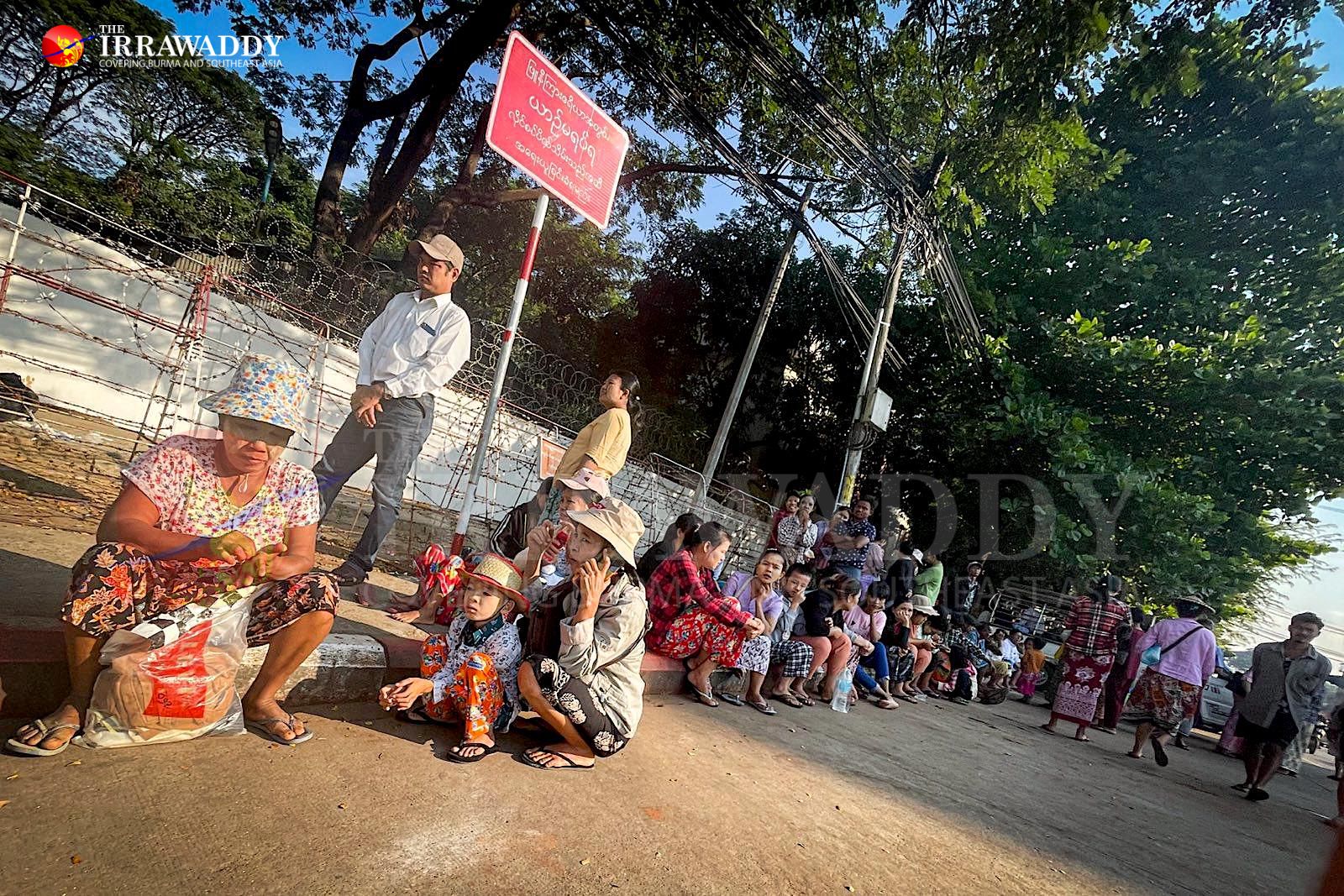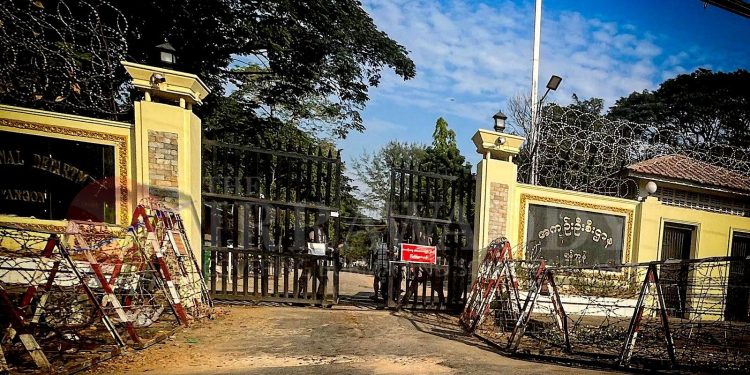Only around 120 of over 9,600 prisoners released by the Myanmar military regime in an amnesty on Thursday were political prisoners, The Irrawaddy has learned.
The regime granted amnesty to 9,652 inmates being held in prisons across the country on Thursday to mark the 76th anniversary of the country’s independence.
Among the freed prisoners who had been convicted of non-political crimes, many were convicted of illegal possession and abuse of illicit drugs. Most of the political prisoners released had nearly completed their terms, according to a source close to the Corrections Department.
“Only around 70 political prisoners charged with incitement under Section 505 (a) of the Penal Code were released across the country. The rest [of the approximately 120 freed political prisoners] had been sentenced to three years and had less than a year left to serve. And no high-profile politicians were released,” said the source.
Apart from the some 70 that were jailed for alleged incitement, the other political prisoners released on Thursday were imprisoned for alleged violation of the Unlawful Association Act, and alleged possession of weapons and ammunition with the intent to a stage revolt.

Among those released on Thursday from Mandalay’s Obo Prison were former Mandalay Mayor Dr. Ye Lwin and a former member of the Mandalay City Development Committee of the ousted National League for Democracy (NLD) government.
Dr. Hla Myat Thwe, a former minister in the NLD’s Ayeyarwady regional government, was also released from Pathein Prison in Ayeyarwady Region, according to sources close to the prison.
Others released include photojournalist Ko Kaung Sett Lin from the Myanmar Press Photo Agency, jailed under Section 505 (a), and models Thin Zaw Wint Kyaw and Nang Mwe San, who were jailed under the Electronic Transactions Law.
A spokesperson for the Assistance Association for Political Prisoners (AAPP) told The Irrawaddy: “This [release of prisoners] is what successive military dictators do to mitigate the crises facing them, and ease international pressure. We had expected that only a few political prisoners would be released, and the majority would be criminals.”
Last year, the regime granted four amnesties, releasing over 20,000 prisoners. Only 2,400 of them were political prisoners, said the AAPP spokesperson. The regime would continue to keep dissidents behind bars and torture and kill them, he said.
Most of the political prisoners released on Thursday were incarcerated at Insein Prison in Yangon, Obo Prison in Mandalay, and Tharyarwaddy and Daik-U prisons in Bago, according to sources close to the Corrections Department.
Starting in early December, staff in the respective prisons were instructed to make lists of prisoners eligible for the amnesty, said sources. The lists submitted to higher-level authorities of the regime included political prisoners who were only six to 10 months away from release, but most of them were excluded from Thursday’s amnesty.
A source from Obo Prison who did not want to be named said: “We submitted a list that included around 2,000 names, many of whom were political prisoners. But only around 1,000 prisoners were released [from Obo Prison], and most of them are not political prisoners.”
On Dec. 30, political prisoner San Lin San, who was a singer and composer, was tortured to death in Pathein Prison. He had been given a long prison sentence for alleged violation of the Counter-Terrorism Law.

















